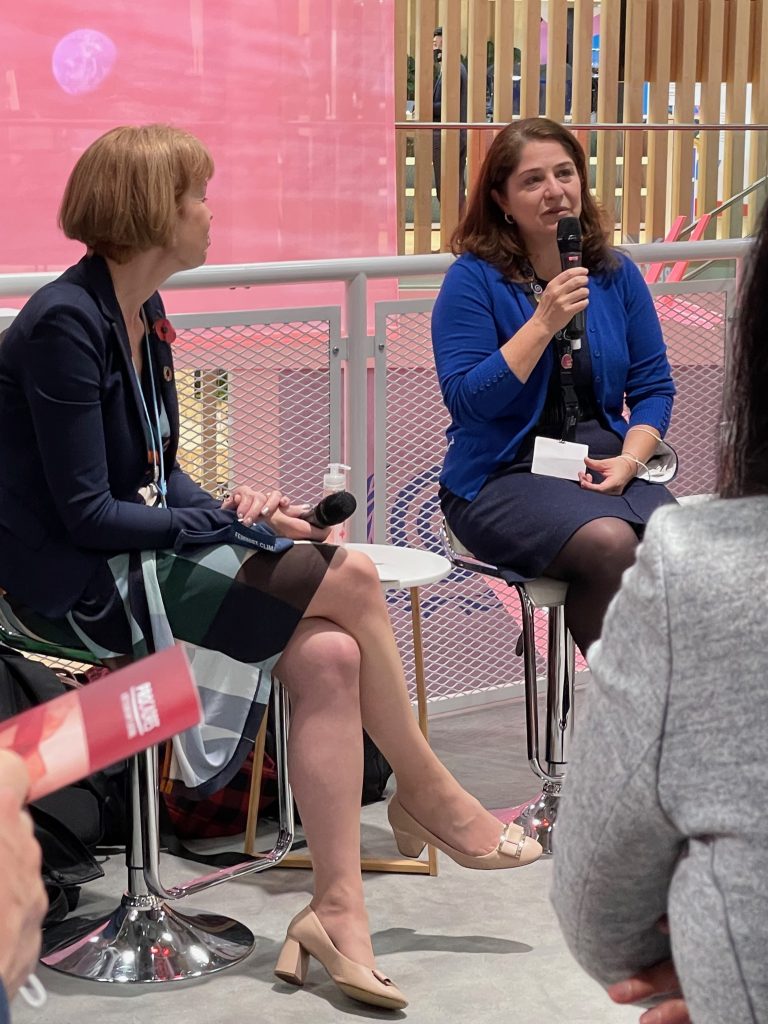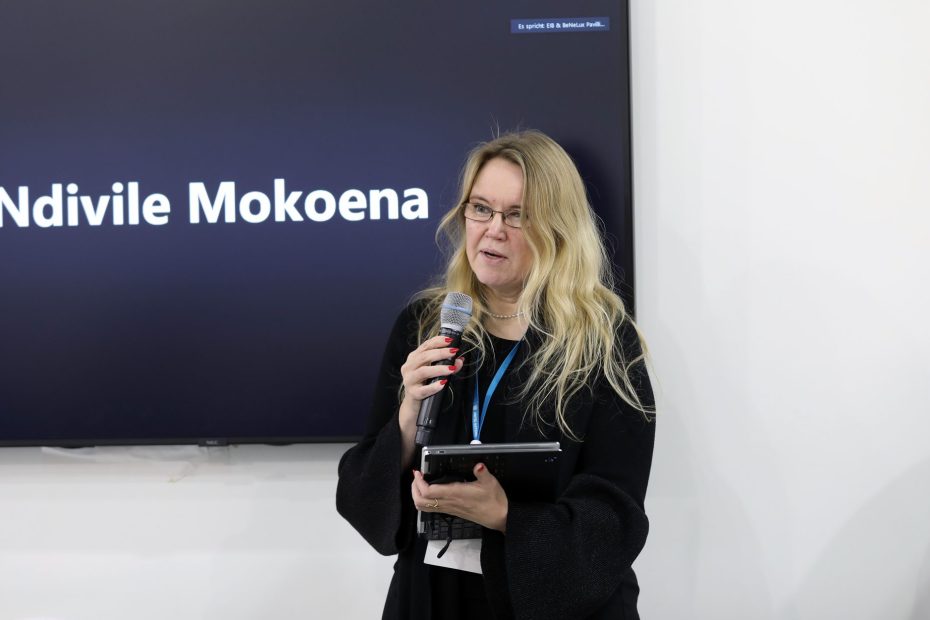Anju Sharma*
After dinner, there was storytelling. Mismatched tables were pulled together to form a haphazard roundtable. The members of the Women Climate Leaders’ Network under the UNFCCC needed very little encouragement to start talking about how they came to be in senior positions in the UNFCCC process, and about their experiences. There were remarkable similarities in their stories. Almost without exception, they had been asked by someone else to take on the roles. That statistic about men applying for a position when they meet only 60% of the qualifications, but women applying only if they meet 100% may be speculative, but it did seem to be very true in the UNFCCC negotiations. Simply acknowledging this reality was powerful.
The first meeting of the Women Climate Leaders Network took place on 7 November 2021 during the dinner, on the sidelines of COP26 in Glasgow. It was organized by the European Capacity Building Initiative (ECBI), with support from the UK Presidency.
Two days later, a similar storytelling and experience sharing session among women took place at a side event, which was also supported by the UK Presidency, along with the Governments of Luxembourg, Belgium, and the Netherlands (together known as BENELUX) and the European Investment Bank (EIB), who kindly made their pavilion available as the venue. The side event was attended exclusively by women, though. not by design, pointing to another well-known barrier to addressing the issue of gender balance in the climate negotiations: it often ends up being a one-sided conversation. Having said that, the energy at an event attended exclusively with women was markedly different – filled with laughter, friendlier, and more open than usual side events at COPs.
“Data has shown that gender sensitive policies will likely happen only when women can participate in decision-making processes, which is why having women at the table, including in leadership positions, is of the utmost importance,” said Zakia Khattabi, Environment Minister of Belgium, in her opening speech. “In this regard the Women leaders Network of the UNFCCC is a welcome and necessary channel to inspire women and girls, and to develop gender sensitive policies and processes.”
Moderator Annela Anger-Kraavi, former SBSTA Vice-Chair, current KCI Co-Chair and the founder and one of the leadership group members of the Network, said, while introducing the network that a key reason for establishing the Network was to ramp up this kind of support and encourage women to take up leadership positions in the UNFCCC processes.
Carolina Urmeneta Labarca, Head of the Office of Climate Change the Ministry of Environment, Chile, told participants about the Climate Change Framework Bill that was passed unanimously in Chile recently, despite it being a difficult political moment for the country. This was unprecedented, she said, and only possible because the process was led by women, including by Chile’s Environment Minister Carolina Schmidt. Women are better listeners and empathisers, said Labarca, and the Bill was passed unanimously because it reflected everything that was said during hours of difficult negotiations in Congress.
Ndiville Mokoena, Focal Point for the UNFCCC’s Women and Gender Constituency, described being “petrified” when she was first asked to take on her international role, and her attempts to turn it down. “But, hey, it happened, and although having a leadership position at the fast-paced international level was daunting, I had amazing support from Constituency members and the UNFCCC Secretariat team.”
About 75% of the speaking time in the UNFCCC plenary is taken up by men, said UNFCCC photographer and panellist Kiara Worth, quoting a recent report on gender by the UNFCCC Secretariat. She described the challenges she faces in reflecting a gender balance in her coverage of UNFCCC events, but noted that the situation is slowly changing. For instance, when the Ad Hoc Working Group on the Paris Agreement was chaired by two women, she said, they were, together “a powerful force, who entered the space and claimed it with style and grace… which went a long way”.

UK FCDO Minister Wendy Morton (left) hosting a session during the reception that followed the side event.
The panellists went on to discuss the challenges of sharing the work burden at home; the lack of capacity building opportunities for women from developing countries, especially observers; and the powerful role of storytelling in empowering other women.
Worth noted that women bring a unique perspective to the UNFCCC process, which is often a dry and stagnant space. “Women bring emotion and feeling, which is important because the negotiations rely on how we connect. If we are not connecting at the negotiations level, then how can we expect to craft policy that will connect with those outside,” she asked. “The negotiations are not just about words on paper, but about peoples’ lives and the realities people are facing – that is something women are more likely to understand and bring to the table, and I think that is important.”
Minister Khattabi said the main role of the Network should be to empower women. “We are half of humanity, and we still have to deal with what men think of our capacities,” she said. “We don’t have to apologize for taking our space.”
A member of the audience noted that the success metrics used for women are often different from those applied to men. “When I sit at the table, I often think – I am brilliant, but I am surrounded by mediocre men. Equality will be achieved once normal women – not just incredible women – also have a seat at the table,” she said.
A reception hosted by the UK Presidency followed the side event.
*Anju Sharma supported the organisation of events for the Women Leaders Network at COP26 on behalf of the European Capacity Building Initiative
